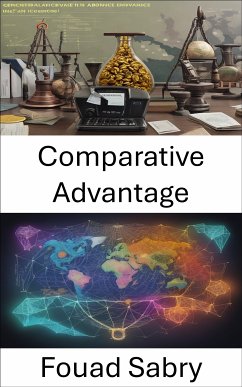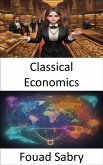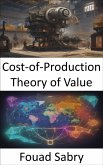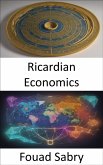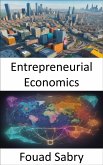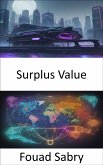What is Comparative Advantage
Comparative advantage in an economic model is the advantage over others in producing a particular good. A good can be produced at a lower relative opportunity cost or autarky price, i.e. at a lower relative marginal cost prior to trade. Comparative advantage describes the economic reality of the work gains from trade for individuals, firms, or nations, which arise from differences in their factor endowments or technological progress.
How you will benefit
(I) Insights, and validations about the following topics:
Chapter 1: Comparative advantage
Chapter 2: David Ricardo
Chapter 3: Labor theory of value
Chapter 4: Internationalization
Chapter 5: Classical economics
Chapter 6: Stolper-Samuelson theorem
Chapter 7: Balassa-Samuelson effect
Chapter 8: On the Principles of Political Economy and Taxation
Chapter 9: Absolute advantage
Chapter 10: Heckscher-Ohlin model
Chapter 11: New trade theory
Chapter 12: Economic integration
Chapter 13: Leontief paradox
Chapter 14: Intra-industry trade
Chapter 15: Gravity model of trade
Chapter 16: Revealed comparative advantage
Chapter 17: Ricardian economics
Chapter 18: Luigi Pasinetti
Chapter 19: Robinson Crusoe economy
Chapter 20: International trade theory
Chapter 21: Ricardo-Viner model
(II) Answering the public top questions about comparative advantage.
(III) Real world examples for the usage of comparative advantage in many fields.
Who this book is for
Professionals, undergraduate and graduate students, enthusiasts, hobbyists, and those who want to go beyond basic knowledge or information for any kind of Comparative Advantage.
Comparative advantage in an economic model is the advantage over others in producing a particular good. A good can be produced at a lower relative opportunity cost or autarky price, i.e. at a lower relative marginal cost prior to trade. Comparative advantage describes the economic reality of the work gains from trade for individuals, firms, or nations, which arise from differences in their factor endowments or technological progress.
How you will benefit
(I) Insights, and validations about the following topics:
Chapter 1: Comparative advantage
Chapter 2: David Ricardo
Chapter 3: Labor theory of value
Chapter 4: Internationalization
Chapter 5: Classical economics
Chapter 6: Stolper-Samuelson theorem
Chapter 7: Balassa-Samuelson effect
Chapter 8: On the Principles of Political Economy and Taxation
Chapter 9: Absolute advantage
Chapter 10: Heckscher-Ohlin model
Chapter 11: New trade theory
Chapter 12: Economic integration
Chapter 13: Leontief paradox
Chapter 14: Intra-industry trade
Chapter 15: Gravity model of trade
Chapter 16: Revealed comparative advantage
Chapter 17: Ricardian economics
Chapter 18: Luigi Pasinetti
Chapter 19: Robinson Crusoe economy
Chapter 20: International trade theory
Chapter 21: Ricardo-Viner model
(II) Answering the public top questions about comparative advantage.
(III) Real world examples for the usage of comparative advantage in many fields.
Who this book is for
Professionals, undergraduate and graduate students, enthusiasts, hobbyists, and those who want to go beyond basic knowledge or information for any kind of Comparative Advantage.
Dieser Download kann aus rechtlichen Gründen nur mit Rechnungsadresse in A, B, BG, CY, CZ, D, DK, EW, E, FIN, F, GR, H, IRL, I, LT, L, LR, M, NL, PL, P, R, S, SLO, SK ausgeliefert werden.

